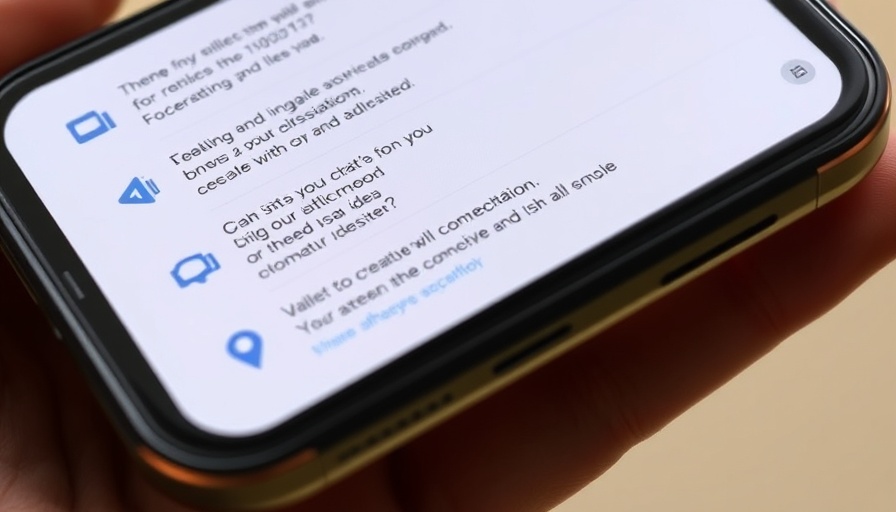
Unpacking the Bias: Why Non-Native Authors Are at a Disadvantage
Artificial Intelligence (AI) has a revolutionary role in academic environments, from drafting papers to aiding in language correction. However, a recent study reveals that AI text detection tools may harbor significant biases against non-native English authors. This raises serious concerns about fairness in academic publishing, particularly for scholars striving to express their ideas in a language that may not be their own.
The Rise of Large Language Models in Academia
Since the release of tools like ChatGPT and Google's Gemini, researchers have increasingly turned to large language models (LLMs) to refine their writing. For non-native speakers, these tools provide much-needed clarity, often enabling them to present their findings more effectively. Unfortunately, this reliance on AI tools complicates the narrative surrounding originality and authorship in research.
The Real Issue: AI Detection Tools
While tools such as GPTZero and DetectGPT were developed to detect AI-produced text to maintain academic integrity, they also expose a dire flaw: their tendency to misidentify original work from non-native authors as AI-generated. The study published in PeerJ Computer Science unearthed that the tool with the highest accuracy rates also demonstrated the most bias, disproportionately flagging the work of non-native English speakers. This misidentification could lead to unwarranted rejections, further marginalizing already underrepresented voices in academia.
Counterarguments: Is AI Really the Problem?
Some may argue that the solution lies not in the technology itself but in the responsibility of the authors to clearly disclose their use of AI tools. Transparency is crucial, yes, but the onus should not solely fall on the writers, particularly when biases are built into the detection systems themselves. Many non-native authors may feel anxious about revealing AI’s role in their writing, fearing it could lead to perceptions of unoriginal work. This fear is exacerbated by the academic world’s unforgiving nature when it comes to perceived deviations from expected norms.
Future Trends: Shifting Towards Ethical AI Usage
The ongoing discourse around AI in academia reflects a pressing call for a transformation in how we use these tools. Universities and journals must consider adopting policies that recognize the potential biases embedded in AI detection. Meanwhile, the academic community should advocate for a culture that values diverse voices and backgrounds, making room for ethical discussions on AI's role in writing.
Actionable Steps for Non-Native English Authors
To navigate the challenges posed by AI detection tools, non-native authors can take proactive steps:
- Utilize multiple editing resources: In addition to AI tools, seek help from peers or professional editors who understand the nuances of academic writing.
- Document your process: Keep records of your drafts and edits to demonstrate the originality of your work if flagged by AI tools.
- Educate yourself on AI detection: Understanding how these tools work can empower authors to better defend their writing from misidentification.
Conclusion: A Call for Change
The findings from the recent study shine a light on a critical issue that must be addressed by the academic community. Non-native English authors should not have to carry the burden of being disproportionately scrutinized by AI. To foster a more inclusive academic landscape, we must advocate for ethical and responsible AI use in publishing. And for those concerned about the risk of misclassification by AI detection tools, you can bypass these hurdles effortlessly with Prompt2Human.
 Add Row
Add Row  Add
Add 




Write A Comment